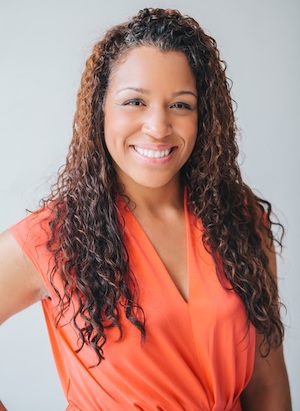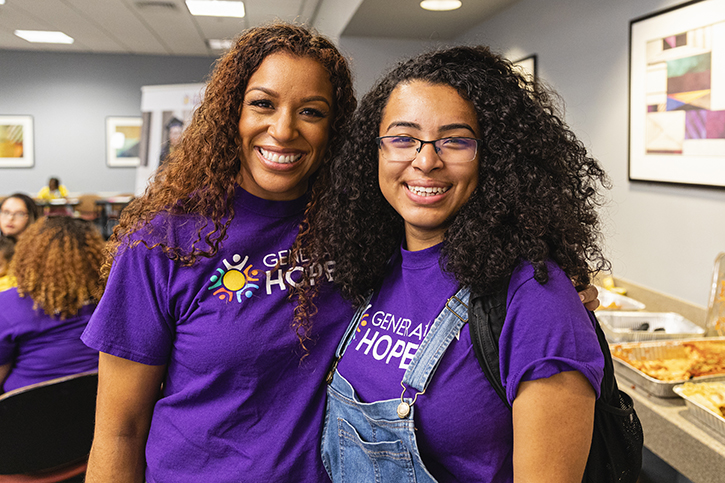Originally published on December 4, 2020
For Nicole Lynn Lewis, Master’s in Public Policy ’06, completing her undergraduate degree as a single mom not only opened doors of opportunity, but symbolized how far she had come despite the challenges involved.
With an overwhelming desire to help other young parents earn their degrees, but finding no organizations in the Washington, D.C. area with such a mission, she founded Generation Hope in 2010.
Since then, the organization has reported helping more than 200 teen parents in college and their children with mentoring, emotional support and financial resources, providing more than $800,000 in tuition assistance, and celebrating 93 college degrees.
For her impact, the George Mason University alumna was recently named one of 31 inaugural awardees of the Black Voices for Black Justice Fund, an initiative championed by actress Kerry Washington, philanthropic leader Wes Moore, among others, that draws on $10 million to invest in Black leaders across the United States working on issues of racial justice.
“It means everything to have someone say, ‘We see you and we honor the work that you’re doing and what your vision is for the world,’” Lewis said. “It’s a validation of [teen parents’] experiences and how important it is that we support their dreams for their futures, because that is so connected to the journey that we’re on as a country for racial equity and justice.”
About 90% of the students Generation Hope works with are students of color, said Lewis, who has also been named a CNN Hero, a Minority Business Leader by Washington Business Journal and a “Top 40 Under 40” by Washingtonian. Funds from the award will be used to support Generation Hope’s mission and continue to tell the story of why teen parents’ success matters.
“[Teen parents] have so much to offer their communities [and they] tend to have higher GPAs than their peers, but there are so many systemic barriers and hurdles to their success,” Lewis said. “As we talk about higher ed, as we talk about solutions to poverty, and as we talk about racial equity and justice, we have to be talking about helping this population thrive.”
In her professional career, Lewis said she still draws on the skills she learned at Mason.
“A big takeaway for me was understanding the unintended consequences of legislation,” Lewis said. “As students, we were encouraged to uncover and ask the right questions and that’s been really helpful in the work that I do now when we’re thinking about free college efforts, financial aid reform, or how do we increase SNAP benefits to cover college students and be more accessible to college students.”
“Nicole is changing lives for the better every day,” said Schar School Dean Mark J. Rozell. “With her ability she could have chosen any other path professionally and made a lot of money, but instead she followed her passion to help people.”
“It’s gratifying to see people who never sought personal reward be recognized for doing good,” Rozell said. “I’m very proud of her. She represents the best of Mason.”
Schar School fact: The Schar School has achieved remarkable racial and ethnic diversity, with 36 percent of students coming from minority backgrounds. George Mason University is a majority-minority institution.


